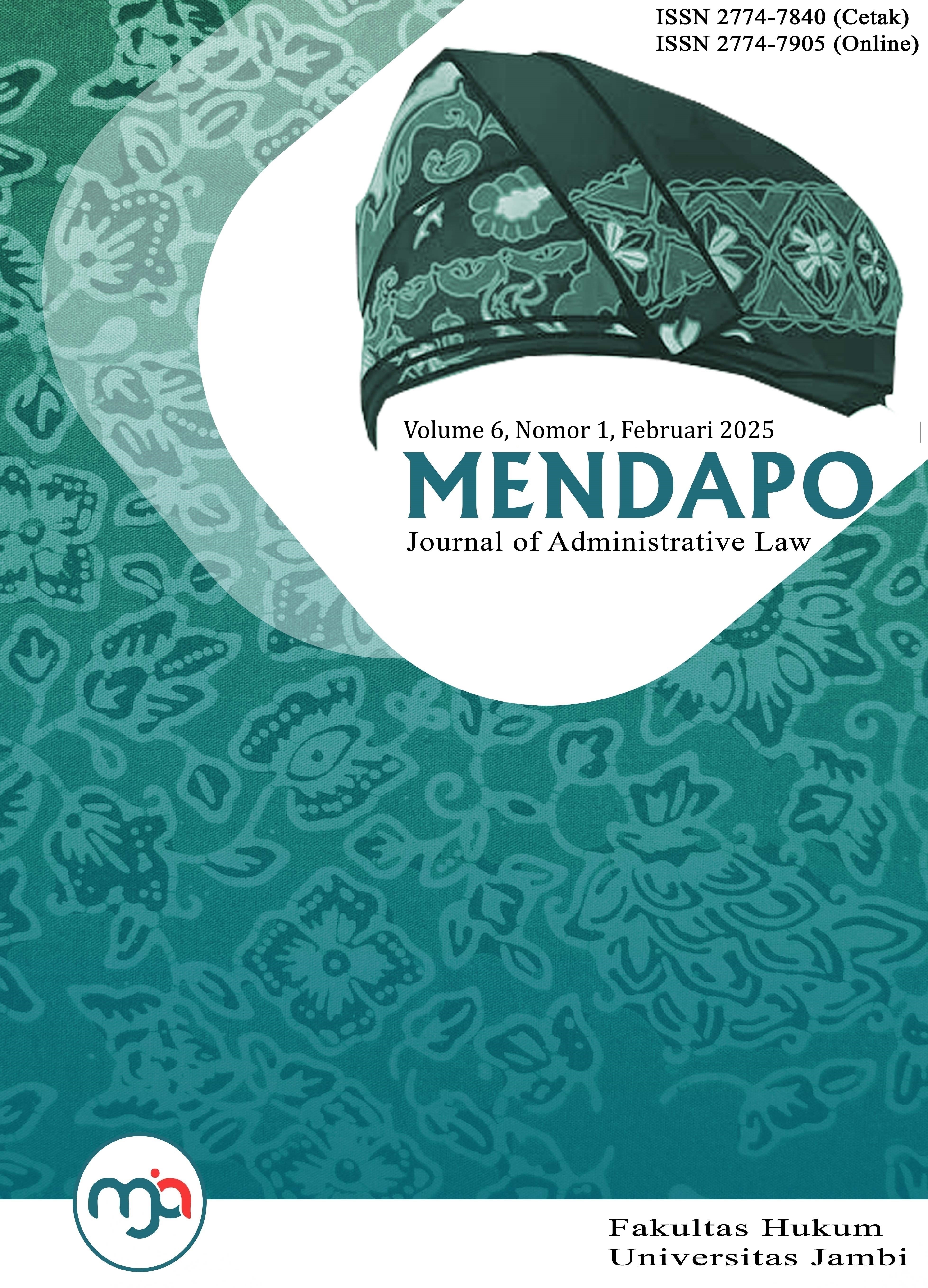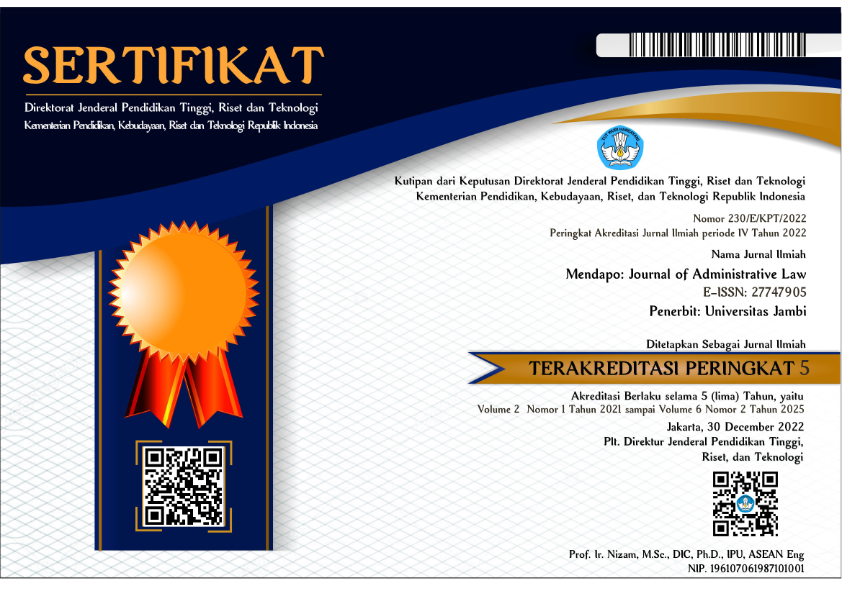Discretionary Criteria Used by Government Officials as Corruption: The Connection of Criminal Law and State Administrative Law
Kriteria Diskresi oleh Pejabat Pemerintahan sebagai Tindak Pidana Korupsi: Persinggungan Hukum Pidana dan Hukum Administrasi Negara
DOI:
https://doi.org/10.22437/mendapo.v6i1.39014Keywords:
Diskresi, Pejabat Pemerintahan, KorupsiAbstract
This study investigates issues related to discretionary criteria that can be classified as criminal acts of corruption. Utilizing a statutory, case, and conceptual approach, it conducts normative legal research. The findings indicate that discretion can be categorized as a criminal act of corruption if it contradicts the intent behind its issuance, as outlined in Article 22 paragraph (2) of Law Number 30 of 2014 regarding Government Administration. Additionally, it must not fall within the parameters of discretion defined in Article 23 of the same law, fail to meet the necessary conditions for its issuance stated in Article 24, and align with the elements described in Article 3 of the Corruption Eradication Law, demonstrating an abuse of authority. In the future, government officials are expected to understand the intersections between criminal law and state administrative law before implementing policies that are considered discretionary.
Downloads
Downloads
Published
How to Cite
Issue
Section
License
Copyright (c) 2025 Nabila Ihza Nur Muttaqi, Iqbal Arpanuddin

This work is licensed under a Creative Commons Attribution 4.0 International License.







